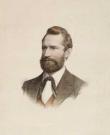 4515434647922432341.jpg
4515434647922432341.jpg
 Journal of an Overland Expedition in Australia : From Moreton Bay to Port Essington, a Distance of Upwards of 3000 Miles, During the Years 1844-1845
single work
Journal of an Overland Expedition in Australia : From Moreton Bay to Port Essington, a Distance of Upwards of 3000 Miles, During the Years 1844-1845
single work


